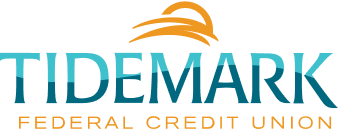Trust Accounts
Unlock the Full Potential of Trust Accounts
We Provide Guidance For All Types Of Trusts
Totten Trust
A Totten Trust is known as payable-on-death type of account, which expresses the owner’s intent to transfer funds to named beneficiaries at the time of the owner’s death. Unlike more complicated trusts, Totten or payable-on-death trusts can be created at the credit union simply by indicating that intent in the title of the account.
A testamentary account in which the named beneficiary is the spouse, child, or grandchild of the owner, is "insured up to $250,000 in the aggregate as to each such beneficiary, separately from any other accounts of the owner or beneficiary, regardless of the membership status of the beneficiary." If the named beneficiary is not the owner's spouse, child, or grandchild, then the funds in the account "shall be added to any individual accounts of such owner and insured by $250,000 in the aggregate."
Fundraising Trust
Foundations
These nonprofit organizations accept contributions from individuals or corporations for the benefit of a cause‚ such as medical research for a specific illness‚ help for a specific region‚ or other things. Contributions are tax-deductible to the donors. Unfortunately‚ to be approved for nonprofit status by the IRS‚ which allows a foundation to accept tax-deductible contributions‚ the foundation can’t be set up for the benefit of individual people. To go the foundation route‚ funds would have to be directed toward a broader purpose‚ such as medical research for a disease or donations to a medical facility.
Forming a foundation involves obtaining nonprofit status — also known as 501(c)(3) status — from the IRS‚ filing annual reports with the state and‚ depending on the level of donation‚ filing a tax return with the IRS. A foundation needs to be incorporated with a governing board and bylaws.
Alternatives To Foundations
Individuals can establish a fund in their loved one’s name, which is as simple as opening a savings account or a trust fund designated for their benefit.
Unlike a foundation‚ a fund doesn’t provide a tax break for the donors, but donations are considered gifts and are not taxable income to the beneficiary. For the donor‚the gift will trigger gift-tax rules if it exceeds a certain level. The recipient will not need to report this on their return as long as it is considered a true gift and not any type of payment. If the gift produces income such as interest or dividends‚ the recipient will need to pay tax on the income earned.
We recommend opening a simple trust account with an appropriate name for your specific purpose. This way‚ donors will be assured that their donations are going into an account for the benefit of the recipient and that the trustee is required to act in the recipient’s best interest. Keep in mind, earnings on the account are taxable to the recipient.
Medicaid-Related Trust Accounts
Miller Trust
Disabled Individual's Special Needs Trust
Living Trust
Blocked Trust
Personal Goals Within Reach:
Discover Our Best Local Rates
Plus, You Get Access to Our Member Premium Benefits

You Become a Member-Owner
We don't exist to enhance the wealth of our shareholders, we are member-owned. As a not-for-profit organization, we use our profits to increase Member benefits and support community causes.

Your Money is Insured & Protected
Instead of being covered under FDIC, your deposits are covered under the National Credit Union Administration (NCUA), which insures deposits up to $250,000, the same amount as the FDIC. It’s a different name but the same function.



